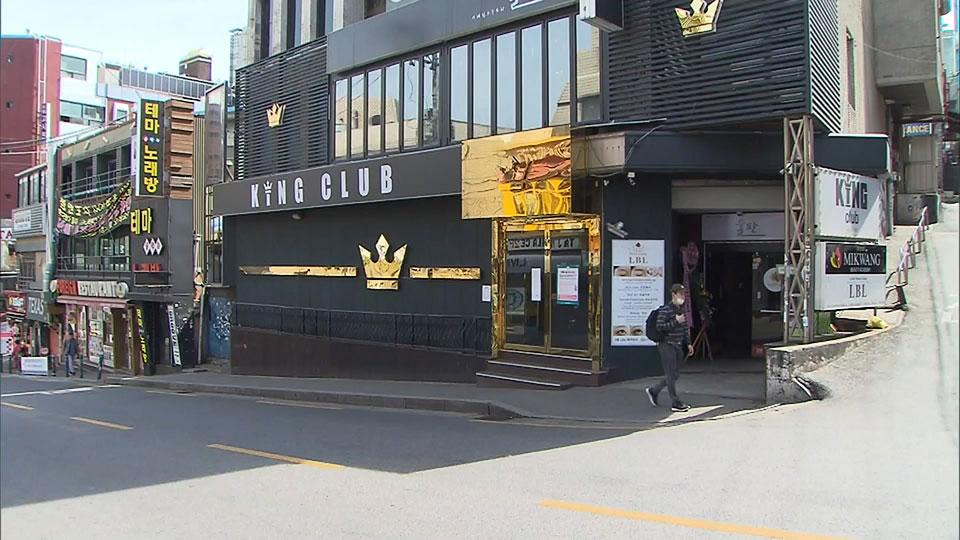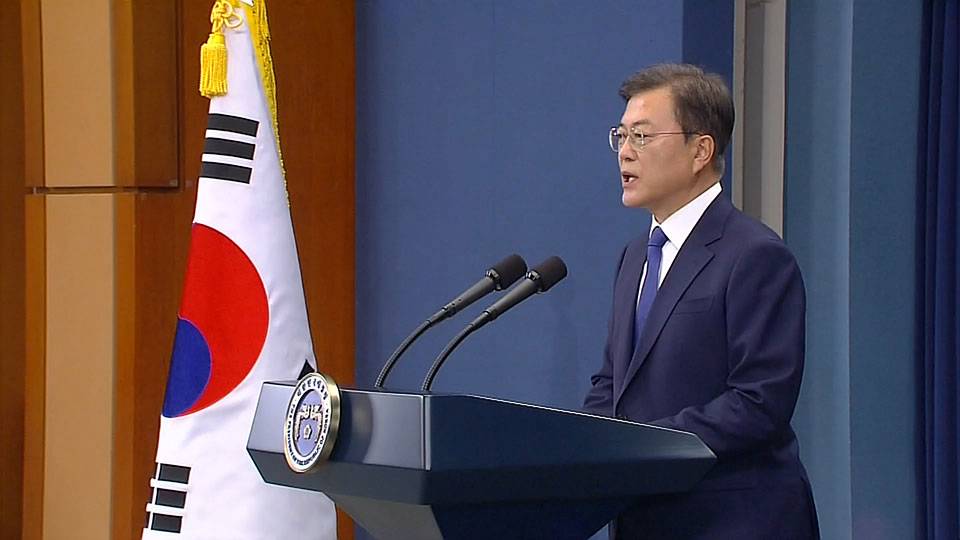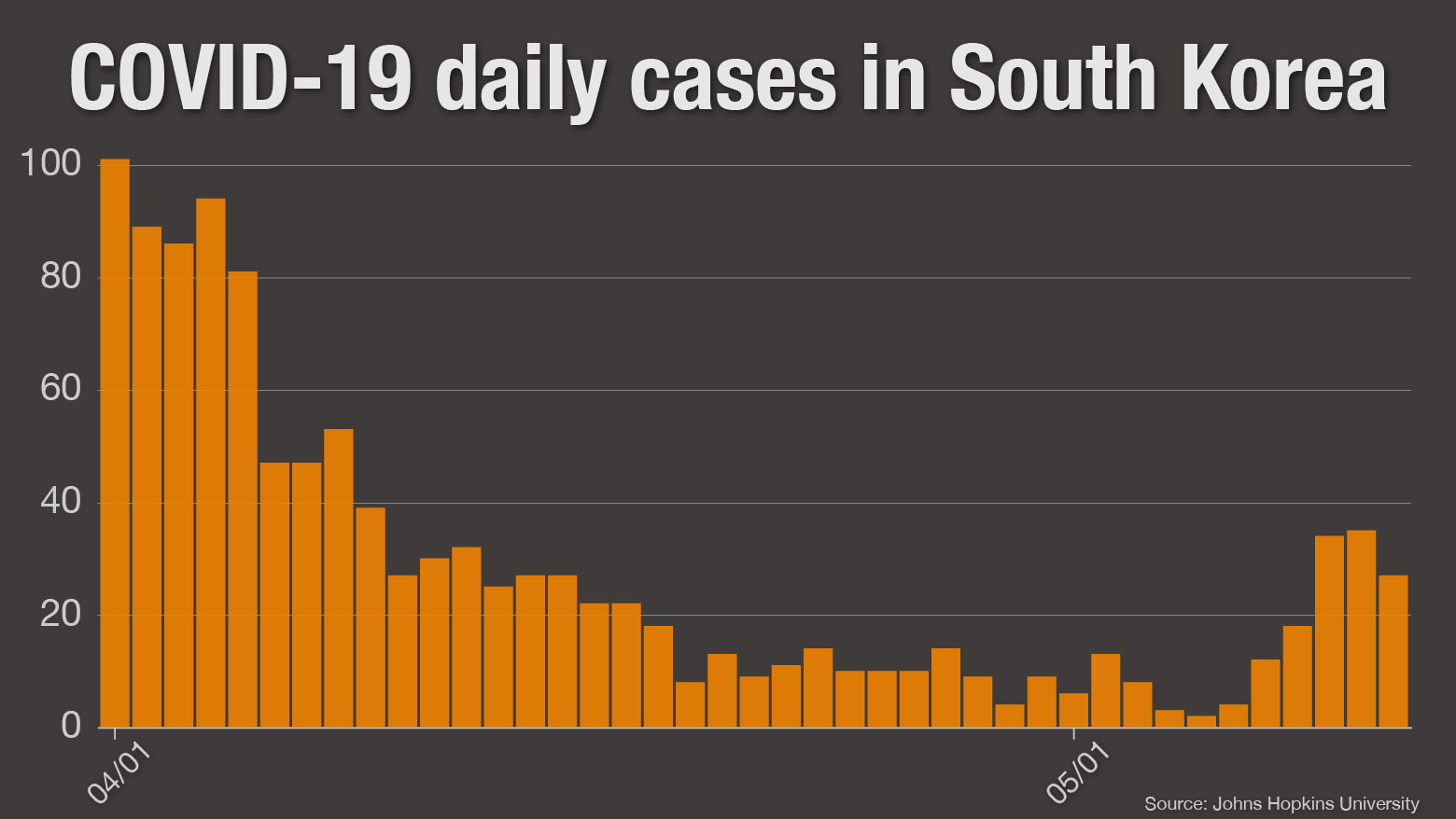Relaxing of social distancing
South Korea has drawn widespread plaudits for its success in curbing the spread of the coronavirus. Experts have hailed the country’s rapid and aggressive testing, and tracking and containment of infections.
After recording hundreds of daily cases at the start of the outbreak, South Korea’s numbers began to decline in late March. By the end of April, the daily figures were in the single digits. The government gave the green light to relax social distancing measures on May 6th, allowing previously closed establishments, such as museums, parks, and libraries, to reopen.
But the virus was beginning to creep back into society even before that, during the country’s week-long spring holiday starting on April 29th. By this point, social distancing was mainly voluntary. Thousands of people reportedly visited clubs and bars in Seoul’s popular Itaewon neighborhood, a well-known nightlife hotspot.
One of these was a 29-year-old man who tested positive for the virus on May 1st. More than 1,500 people are believed to have gone to the clubs and bars he visited during the period.
The South Korean government has compiled a list of more than 5,500 people believed to have visited clubs and bars in Itaewon from April 24th through May 6th. Officials say they have been unable to contact about 2,000 of them. As of May 12th, there have been over 100 confirmed cases linked to the 29-year-old man, with over 60 in Seoul.
Authorities are urging all those who visited Itaewon over the holiday period to get tested, even if they are not showing symptoms.

Efforts to contain community spread
Seoul mayor Park Won-soon ordered the indefinite shutdown of all bars and clubs in the capital. Nearby Gyeonggi Province followed suit.
Meanwhile, the southern city of Daegu, which was the epicenter of the initial outbreak in the country, continues to maintain social distancing measures and a mask requirement for public transportation. Violators face a fine of up to 2,400 dollars.
Commuters in Seoul are required to wear masks during peak hours. Those who refuse to comply are denied entry.
Fear of a second wave
Some people have taken to social media to express outrage at the Itaewon club-goers. Many commenters say it was irresponsible and reckless to go out in the middle of a pandemic.
Government plans to further relax social distancing are now facing pushback. Schools across the country were set to reopen starting on May 13th; this has been postponed for a week.
The country’s LGBTQ community has also faced anger, as the infected man reportedly visited several gay clubs and bars. Sexual minorities already face immense discrimination in the country. Experts say the backlash will discourage some people who visited the clubs and bars from getting tested out of fear of being identified.
In response, Prime Minister Chung Sye-kyun urged the public to “refrain from criticizing a certain community as it will not help efforts to contain the virus.” Park Won-soon, the mayor of Seoul, added that those who visited the clubs and bars were guaranteed anonymity; on the other hand, they face a fine of 1,600 dollars if they do not come forward.
“It’s not over until it’s over”
In a speech marking three years since taking office, President Moon Jae-in warned it would be a long time before the virus is completely contained, saying “it’s not over until it's over” and that infections could break out in any place, at any time.

South Korea isn't the only country with success initially containing the virus to face the prospect of a second wave of infection. China recently reported double digit cases for the first time in about six weeks, while cluster infections broke out in a number of slaughterhouses in Germany.
Such cases are raising questions about whether it is too early to loosen social distancing requirements, as South Korea is planning to do.
Experts say the Itaewon cluster is proof that even countries with the most successful virus response measures face challenges and risks ahead, and that it may not be until a vaccine is approved that life can return to normal.

